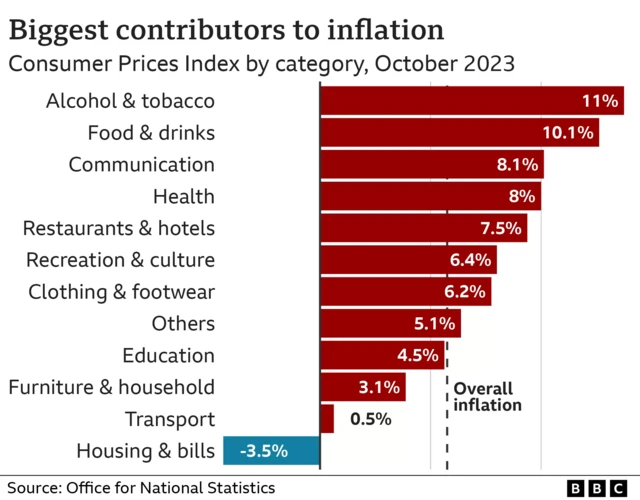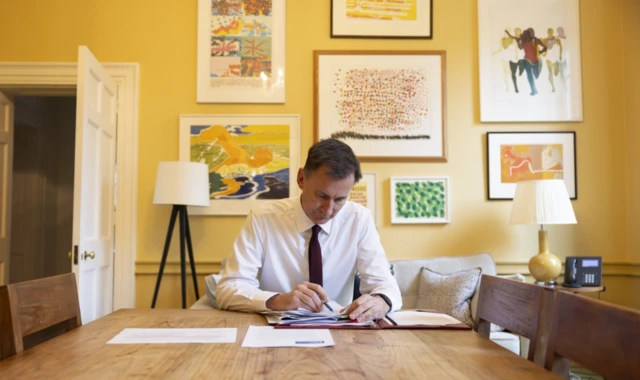
Hunt will try to lay out dividing lines with Labourpublished at 10:10 GMT 22 November 2023
 Chris Mason
Chris Mason
Political editor
We are expecting this statement at lunchtime to announce tax cuts but I think Labour will say: "Well hang on a minute - does that really make much difference given of the amount of tax rises there have been?"
I think the dividing line the government will attempt to paint will be in the language Jeremy Hunt will use – he will say the Conservatives reject big government, high spending and high tax.
The historical reality is the last few years have been all three of those things.
But the government will try and claim that this is the dividing line going into the election, pointing at Labour’s "Green Prosperity Plan" as they call it and the costs associated with that.
The Labour challenge, I suspect, will be to try and win the argument around that being in the long-term best interests of the country and businesses.



